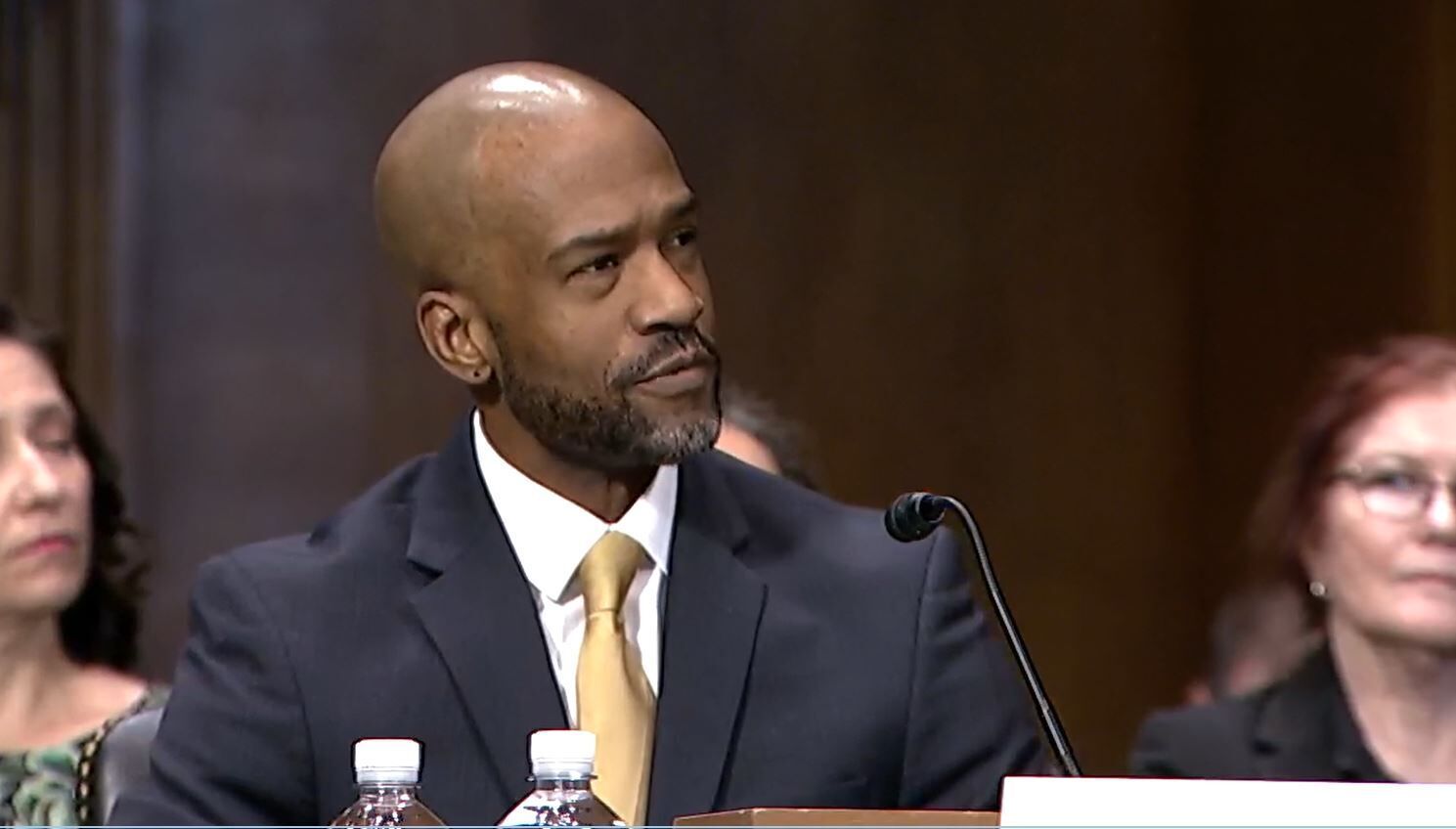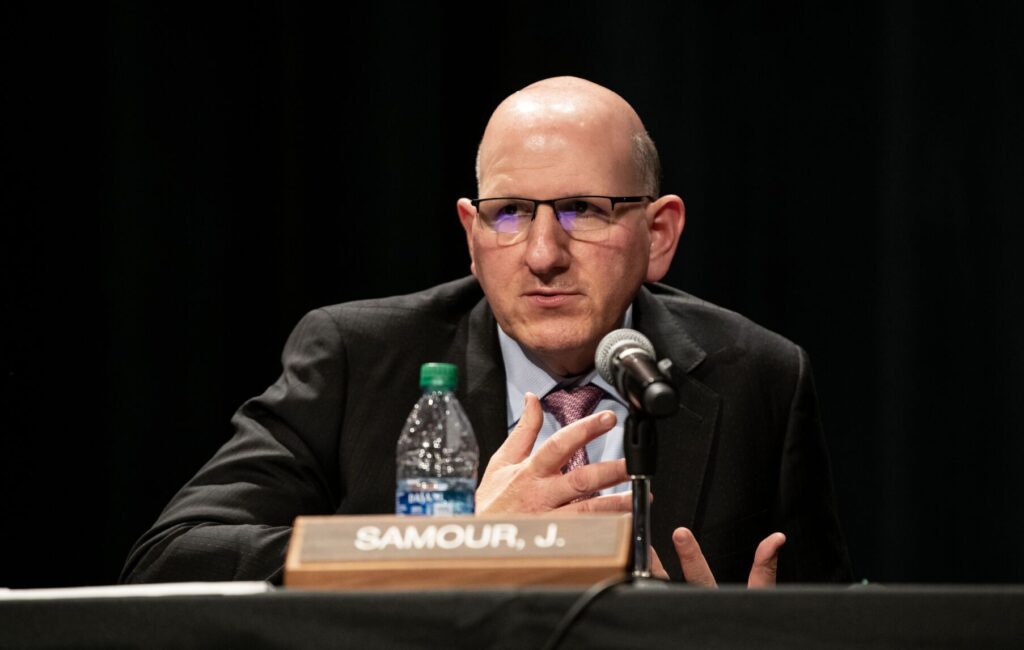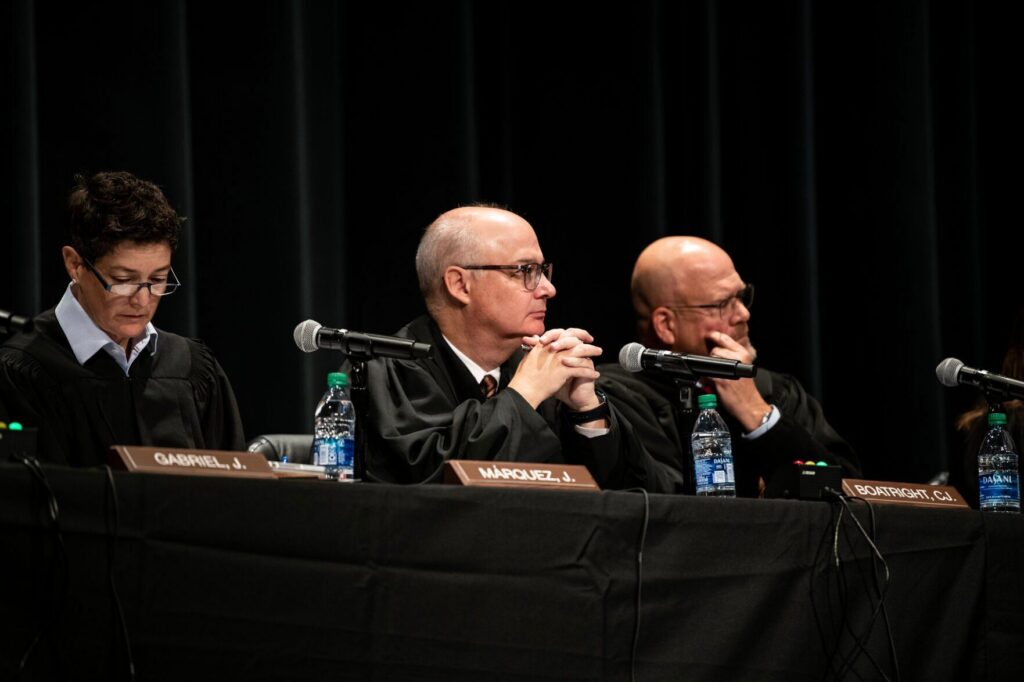Federal judge dismisses claim of falsified testimony against El Paso County coroner employee

A federal judge on Tuesday dismissed a lawsuit from a man who was tried and acquitted of his girlfriend’s 2021 murder, and who subsequently accused a witness of fabricating evidence to make him seem guilty.
Joseph Hunnicutt stood trial twice in El Paso County for the killing of Alison Cantrell. At the first trial in July 2022, jurors acquitted him of first-degree murder but could not reach a verdict on the lesser charges. At the second trial in November 2022, another jury acquitted him of the remaining charges.
Hunnicutt filed suit last year against assistant coroner Daniel Lingamfelter for violating his constitutional right to due process. Specifically, Hunnicutt alleged that between the first and second trials, Lingamfelter altered his testimony to make the victim’s time of death comport more with the prosecution’s narrative.
According to the complaint, in response to questioning at the first trial, Lingamfelter opined that Cantrell died between March 13-15, 2021, and probably no later than 10:30 a.m. on March 15. The prosecution subsequently received feedback from jurors that they were concerned about the imprecision over the time of death.
At the second trial, Lingamfelter allegedly testified he did not believe that Cantrell’s death “could have occurred as late as 10:30 a.m. on March 15.”
“This new fabricated time of death window made it appear less likely that Ms. Cantrell died at a time consistent with the defense timeline than his prior testimony,” wrote Hunnicutt’s attorneys.
The El Paso County Attorney’s Office sought to dismiss the lawsuit. It argued that Lingamfelter was entitled to the longstanding civil immunity afforded to witnesses for their trial testimony. In the alternative, the county contended Lingamfelter had not violated Hunnicutt’s clearly established constitutional rights because, as described, there appeared to be no meaningful difference in Lingamfelter’s estimate for the time of death.
“Lingamfelter’s re-trial testimony still approximated Ms. Cantrell’s time of death to include the morning of March 15th and all of March 14th, both of which fit within the defense’s timeline,” wrote the county attorney’s office. “Thus, the Court is left to wonder whether Lingamfelter’s re-trial testimony was actually false and, if so, how.”
In a Sept. 30 order, U.S. District Court Judge S. Kato Crews agreed there was no meaningful difference between Lingamfelter’s statements.
“Without more, the difference between the two statements is negligible if there is any difference at all,” he wrote.
Crews added that Hunnicutt also needed to demonstrate Lingamfelter knew he was giving false testimony. But Crews found no allegations to that effect.
The case is Hunnicutt v. Lingamfelter.













